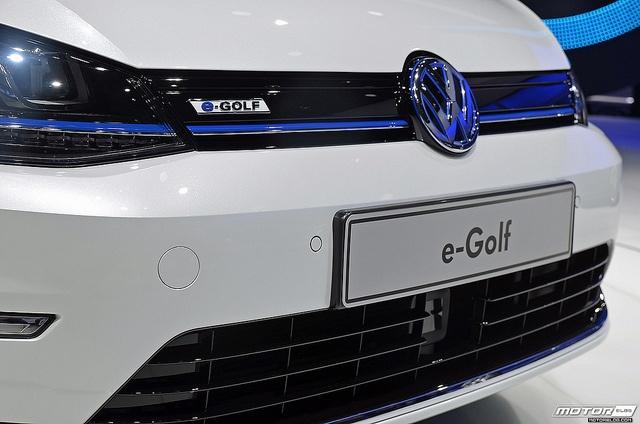
Volkswagen AG's recent announcement that it plans to remake itself into the world's top electric car producer isn't exactly surprising news. With its mile-long list of legal problems from last year's emission scandal and its much longer history of cutting-edge car production, it makes sense for the company to focus on electric car production. Even Elon Musk and a consortium of environmental gurus felt that would be a good fit.
But is it a sustainable choice for Germany's flagship car manufacturer? Green Car Reports senior editor, John Voelcker, points out that VW will have stiff competition based on next year's projected models. The VW e-Golf will have to go some distance to catch up with Chevy's 2017 e-Bolt, which is estimated to double the e-Golf's range. And with more manufacturers getting into the EV game, it's likely the bar for range will raise even further.
The trend is also likely to increase the demand for better, stronger batteries that can support longer distances and fuel even greater jumps in technology. And that's something VW needs before it could outdistance competitors like the Chevy Bolt.
VW's answer to that problem, apparently, is to become the global supplier for electric car batteries. It could cost the automaker as much as $11 billion to build the factory, which would would likely be based in the German state of Lower Saxony. The state owns 20 percent of VW stock, and the new factory would mean increased jobs and services for local communities that already supply as much as 100,000 VW workers.
But that is only part of Volkswagen AG's plan. As Autoexpress U.K. reported last week, the company also plans to build 30 different electric models over the next decade. Counting stock from Porsche and Audi, that could amount to as much as 1 million cars.
Those are tall goals, given the company's legal woes. The $15 billion court settlement reached this week with the United States and California requires VW to shell out $2 billion over the next decade to promote clean energy vehicles. And what will probably sting the most is that the money won't go directly into VW's business, but will help to promote the industry as a whole. That means it will benefit its competitors' success as much as VW's.
"You're looking at $15 billion, but you're also going to have reputational damage and possibly lost market share because the money will promote technologies made by other companies," Maryann Keller, an auto industry specialist, told Bloomberg News on Wednesday.
But that isn't how Volkswagen CEO Matthias Muller sees the company's prospects. The emissions scandal and all of its financial and legal baggage, he says, is the new impetus to change.
"We are using the current crisis to fundamentally realign the Group," Müller told EU parliamentarians in Brussels in January. "I strongly feel we now have the chance to build a new and better Volkswagen."
It's that kind of glass-half-full viewpoint that may just get VW through its challenges. And it could help build a strong electric car industry as it does. It's too early to tell, however, whether consumers will follow.
Image:Flickr/MotorBlog
Jan Lee is a former news editor and award-winning editorial writer whose non-fiction and fiction have been published in the U.S., Canada, Mexico, the U.K. and Australia. Her articles and posts can be found on TriplePundit, JustMeans, and her blog, The Multicultural Jew, as well as other publications. She currently splits her residence between the city of Vancouver, British Columbia and the rural farmlands of Idaho.














